Applied Behavior Analysis (ABA) therapy is a proven evidence-based, best practice model used to provide effective treatment to individuals with Autism Spectrum Disorder (ASD) as well as other behavioral and developmental disabilities.
ABA therapy has become widely accepted among health care professionals and used in many schools and treatment clinics. This type of therapy encourages positive behaviors and discourages negative behaviors in order to improve a variety of skills. The child’s progress is continually tracked and measured.
What is Applied Behavior Analysis (ABA) Therapy?
It is based on the science of learning and behavior and how it works in real situations.
Behavior analysis helps us to understand:
- How behavior works
- How behavior is affected by the environment
- How learning takes place
The goal is to increase behaviors that are helpful and decrease behaviors that are harmful or affect learning.
Programs can help:
- Increase language and communication skills
- Improve attention, focus, social skills, memory, and academics
- Decrease problem behaviors
How does ABA therapy work?
There are many Applied Behavior Analysis techniques for understanding and changing behavior. ABA therapy is a flexible treatment:
- It can be adapted to meet the unique needs of each child
- Provided in many different locations – at a center, at home, at school, and in the community
- Teaches skills that are useful in everyday life
- Can involve one-to-one or group sessions
Services Offered
In-Home & Center-Based
- ABA Therapy 1:1 and Group
- Assessment and Treatment Planning
- Social Skills Training
- Parent Training
- Serving ages 2-21
Our Program Objectives
- Improve Communication
- Confidence Building
- More Independence
- Family Participation
- Skill Development
- Social Growth
Treatment programs are developed and directly overseen by Board Certified Behavior Analysts (BCBAs) and implemented by Registered Behavioral Technicians (RBTs) or highly-trained ABA Specialists.
What is a BCBA?
The Board Certified Behavior Analyst (BCBA) plays a critical role in the treatment or management of behavioral, emotional, and developmental disorders of individuals with autism. To become a BCBA, an individual must earn a master’s degree or PhD in psychology or behavior analysis, work under the supervision of a BCBA, pass a national certification exam, seek a state license to practice (in some states) and maintain continuing education credits.
Services delivered and overseen by our BCBAs include:
- ABA Therapy 1-on-1 and Group
- Assessment and Treatment Planning
- Social Skills Training
- Parent Training
Contact us to learn more about how BCBAs utilize ABA Therapy in the treatment of autism.
Family Support Services
Beyond just the treatment plan – we offer a fully supportive experience for the child and family.
We strive to provide both individual and community support to your family through advocacy, offering free parent support groups and by connecting you with resources beyond our own organization.
You will find strength through our local and national network of individuals and families that are part of the Kaleidoscope family and embody the Kaleidoscope ABA Way.


